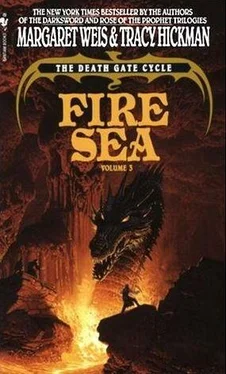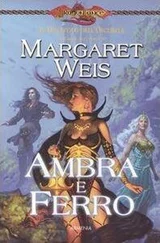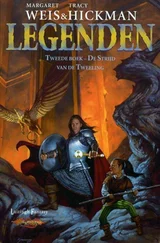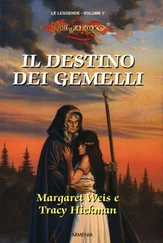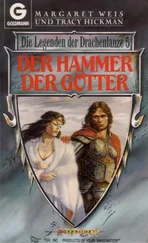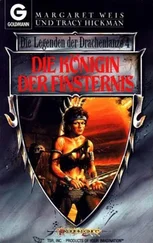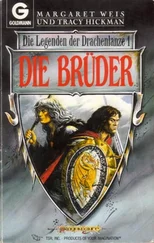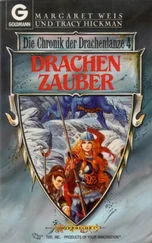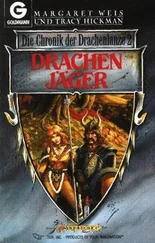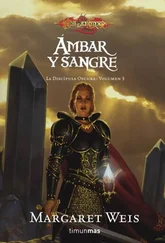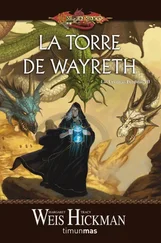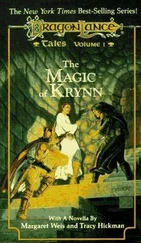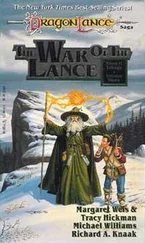Margaret Weis - Fire Sea
Здесь есть возможность читать онлайн «Margaret Weis - Fire Sea» весь текст электронной книги совершенно бесплатно (целиком полную версию без сокращений). В некоторых случаях можно слушать аудио, скачать через торрент в формате fb2 и присутствует краткое содержание. Жанр: Фэнтези, на английском языке. Описание произведения, (предисловие) а так же отзывы посетителей доступны на портале библиотеки ЛибКат.
- Название:Fire Sea
- Автор:
- Жанр:
- Год:неизвестен
- ISBN:нет данных
- Рейтинг книги:4 / 5. Голосов: 1
-
Избранное:Добавить в избранное
- Отзывы:
-
Ваша оценка:
- 80
- 1
- 2
- 3
- 4
- 5
Fire Sea: краткое содержание, описание и аннотация
Предлагаем к чтению аннотацию, описание, краткое содержание или предисловие (зависит от того, что написал сам автор книги «Fire Sea»). Если вы не нашли необходимую информацию о книге — напишите в комментариях, мы постараемся отыскать её.
Fire Sea — читать онлайн бесплатно полную книгу (весь текст) целиком
Ниже представлен текст книги, разбитый по страницам. Система сохранения места последней прочитанной страницы, позволяет с удобством читать онлайн бесплатно книгу «Fire Sea», без необходимости каждый раз заново искать на чём Вы остановились. Поставьте закладку, и сможете в любой момент перейти на страницу, на которой закончили чтение.
Интервал:
Закладка:
“We will stand before them,” said the young man. “Reveal to them the truth .. .”
And be carried over the edge of the cliff with them, thought Alfred. He kept the words to himself; let the young man live while he could in the bright dream.
“How,” he said instead, sadly, “do you suppose it all went wrong?”
The young man had the answer, the young always have the answers. “Throughout history, man has feared the forces in the world he could not control. He was alone in an immense universe that appeared uncaring. Thus in the ancient days, when the lightning flashed and thundered, he cried to the gods to save him.
“In the more recent past, man began to understand the universe and its laws. Through technology and science, he developed the means to control the universe. Unfortunately, like the rabbi who created the golem, man discovered he could not control his own creation. Instead of coming to control the universe, he came near to destroying it.
“After the holocaust, man had nothing to believe in; all his gods had abandoned him. He turned to himself, to the forces within himself. And he found the magic. Over time, the magic brought us more power than we’d ever attained in our many thousand years of striving. We didn’t need the gods anymore. We were the gods.”
“Yes, so we believed,” agreed Alfred, pondering. “And being a god was a heavy responsibility, burdensome—or so we told ourselves: ruling over and controlling the lives of those weaker than ourselves, depriving them of their freedom to determine their paths through life, forcing them to walk the one path we deemed good....”
“Yet how we enjoyed it!” said the young man.
Alfred sighed. “How we enjoyed it. How we enjoy it still and hunger after it! That’s why it is going to be difficult, so very difficult—”
“Brethren.” A woman, seated at the head of the table, broke in. “They are coming.”
No tongue spoke a word, only the eyes communicated. Heads turned, each person looked searchingly at those beside him, receiving strength and reassurance. Alfred saw resolution and fierce joy light the eyes of the young man.
“Let them come!” he said suddenly. “We are not misers, bent on hoarding the gold we have discovered! Let them come and we will share it with them, gladly!”
The other young people who were gathered around the table caught fire from the young man’s torch. Burning with inspiration, they cried out in agreement. Their elders smiled indulgently, sorrowfully. Many lowered their eyelids, not wanting their own bitter knowledge and unfortunate wisdom to snuff out the life of the bright flame.
Besides, thought Alfred, perhaps we are wrong. Perhaps the young are right. After all, why should this be revealed to us if we are not to carry it forth . . .
Sounds could be heard outside the sealed chamber, sounds indicative of many people. And it was not the sound of footsteps marching in response to order and discipline. It was the shuffling, stomping, confused sound of indiscipline, of chaos and riot, of the mob. The Sartan seated around the table again exchanged glances, doubtful, questioning.
No one can enter this chamber unless we open it. We can stay sealed up in here forever, reveling in our knowledge, keeping it only for ourselves.
“Our brother is right,” said the eldest Sartan among them. A venerable woman whose body was frail and fragile as that of a bird’s, her indomitable spirit and powerful magic had led them to the marvelous discovery. “We have been the miser, hiding our wealth beneath the mattress, living in poverty by day, taking our gold out in the darkness of the night to gaze at it with covetous eyes and then returning it to its hiding place. Like the miser, who does no good with his gold, we will soon shrivel and dry up inside. It is not only our responsibility to share our wealth, it is our joy. Remove the runes of protection.”
It is the right thing to do, I know, thought Alfred, lowering his head. But I am not strong. I am afraid.
A hand closed over his, a hand that was warm and strong and tried to share the confidence of the self that guided it.
“They will listen to us,” said the young man softly, exultantly. “They must!”
The bright and beautiful white-blue light faded, dimmed, and died. The sounds beyond the sealed doors were suddenly louder and far more ominous, sounds of shouts and jeers, anger and hatred. Alfred’s heart quailed. His hand, held fast in the young man’s, trembled.
We are right. What we do is right, he kept reminding himself. But, oh, it is hard!
The stone doors ground open. The mob burst into the room, those in back shoving those in front of them to reach their goal. The people in front, however, came to a halt, nonplussed by the calm demeanor and grave, solemn countenances of those gathered around the table. A mob feeds off fear. Faced by reason and calm, the mob finds some of its energy begin to drain away.
The enraged shouts dwindled to mutterings, broken occasionally by the yell of someone in the back, demanding to know what was happening. Those who had crowded into the room, intent on violence, looked foolish and sought among themselves for a leader, someone to rekindle the comforting flame of rage.
A man stepped forward. Alfred’s heart, which had been lifted by a sudden flutter of hope, sank in despair, wings broken. The man was clad in black, one of those practicing the newly discovered and previously forbidden art of necromancy. He was powerful, charismatic, and it was rumored that he was seeking to set himself up as king.
He opened his mouth, but before he could speak, the old woman, gazing on him as she might have gazed on an obstreperous child who has just interrupted its elders, asked mildly, “Why have you and your followers disturbed us in our work, Kleitus?”
“Because your work is the work of heretics and we have come to put an end to it,” the necromancer answered.
“Our work here was established by the council—”
“—who deeply regret their actions!” Kleitus sneered.
Those standing behind him voiced their approbation. He knew himself to be in control, now. Or perhaps, Alfred realized with a sudden flash of terrifying insight, Kleitus had been in control all along. His was the spark that had ignited the fire. Now he had only to blow on the coals to create a raging inferno.
“The council set you the task of contacting the other worlds, to explain to them our desperate peril and beg them to send the aid promised to us before the Sundering. And what was the result? For months you did nothing. Then, suddenly, you come forward prattling nonsense that only a child would believe—”
“If it is nonsense,” cut in the old woman, her voice smooth and calm, a contrast to the rising, strident tones of her accuser, “then why disturb us? Let us continue on—”
“Because it is dangerous nonsense!” Kleitus shouted. He lapsed into silence, seeking to gain control over himself. An intelligent man, he knew that wild hacking and slashing was as self-destructive in verbal parry as it was in actual swordplay. His voice, when he spoke, had regained its discipline. “Because, unfortunately, there are some of our people who have the guileless minds of children. And others, like this one.” Kleitus’s gaze rested on the young man. The necromancer’s eyes darkened in anger. “Young people who have been lured into your trap by the bright bauble you dangled in front of them!”
The young man said nothing, the hand holding Alfred’s tightened its firm grip, the handsome face became more serene. What was this young man to Kleitus? He couldn’t be his son, Kleitus wasn’t old enough to have fathered one this age. Younger brother, perhaps, who had looked to the older brother in worship before finding out the truth? Apprentice to a once-idolized teacher? It occurred to Alfred that he didn’t know the young man’s name. Names had never been important to those gathered around the table. Something told Alfred, deep inside, that he would never know it. And that, somehow, it would not matter.
Читать дальшеИнтервал:
Закладка:
Похожие книги на «Fire Sea»
Представляем Вашему вниманию похожие книги на «Fire Sea» списком для выбора. Мы отобрали схожую по названию и смыслу литературу в надежде предоставить читателям больше вариантов отыскать новые, интересные, ещё непрочитанные произведения.
Обсуждение, отзывы о книге «Fire Sea» и просто собственные мнения читателей. Оставьте ваши комментарии, напишите, что Вы думаете о произведении, его смысле или главных героях. Укажите что конкретно понравилось, а что нет, и почему Вы так считаете.
